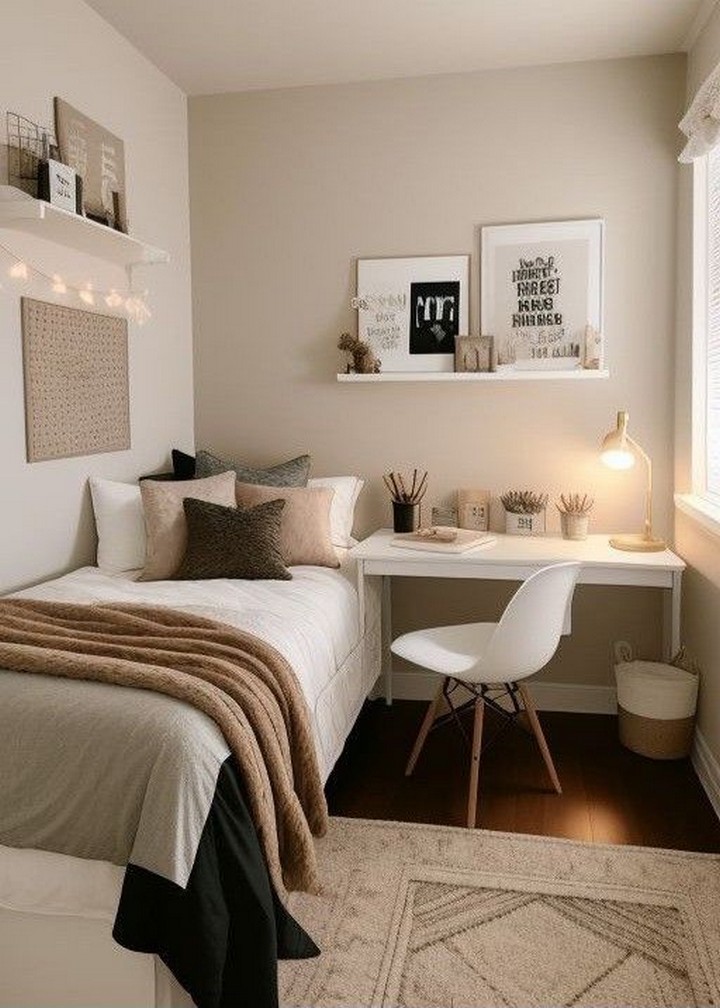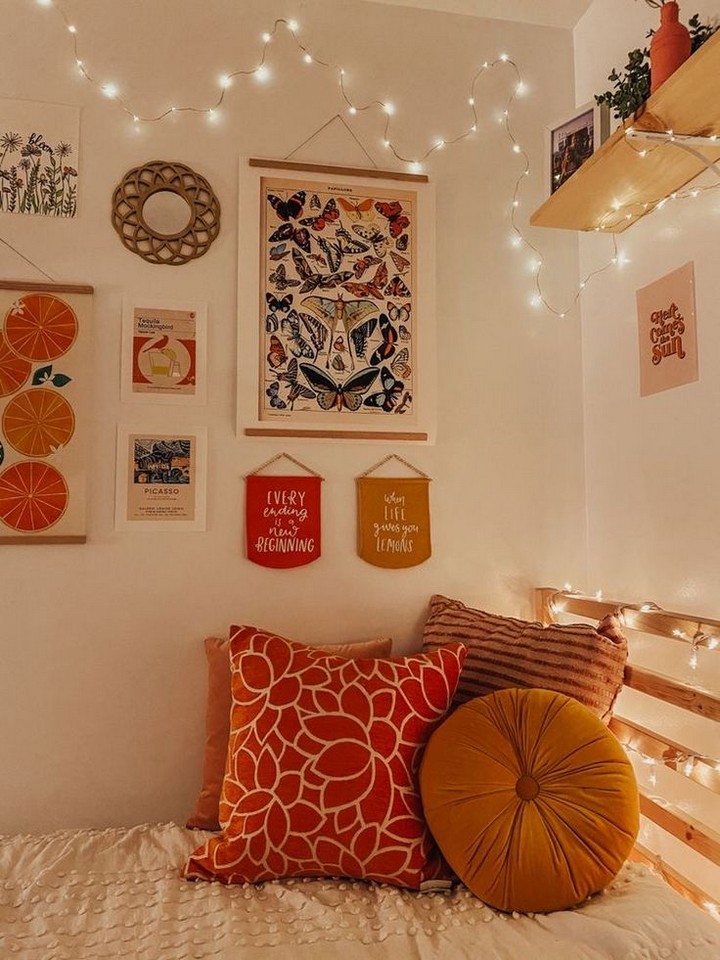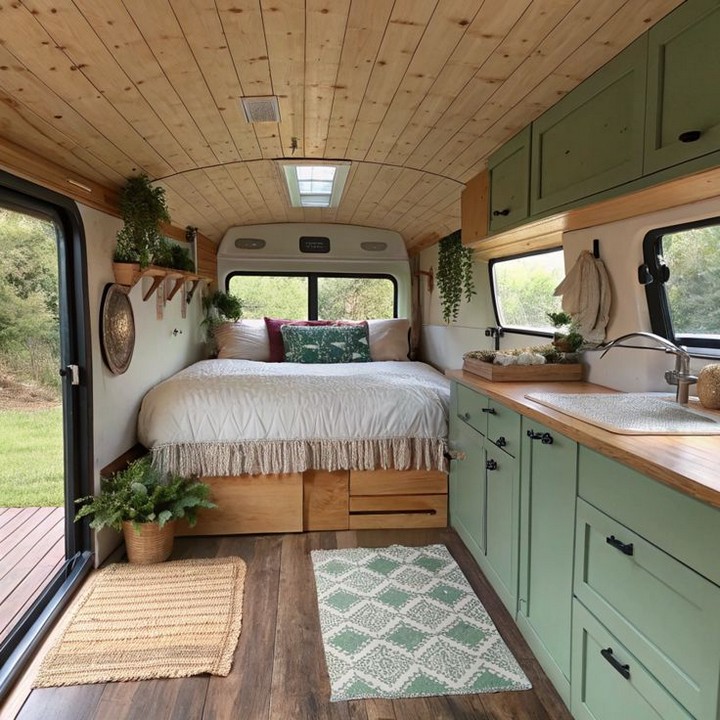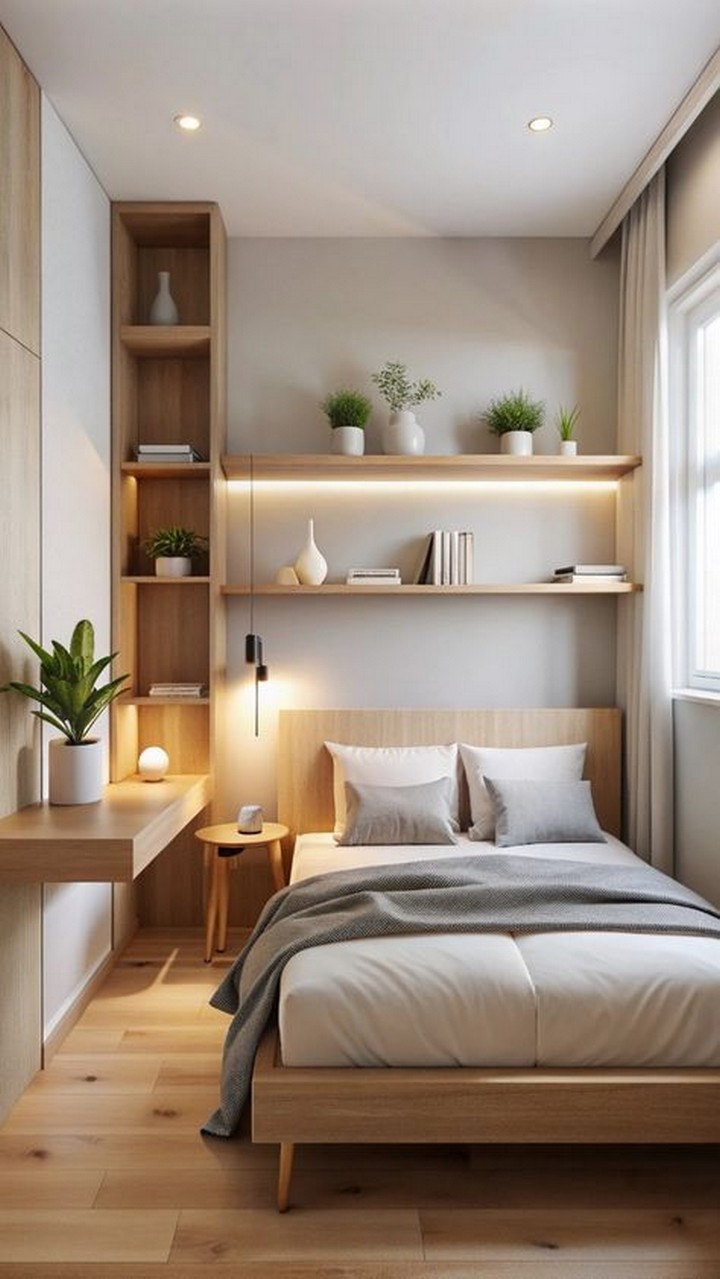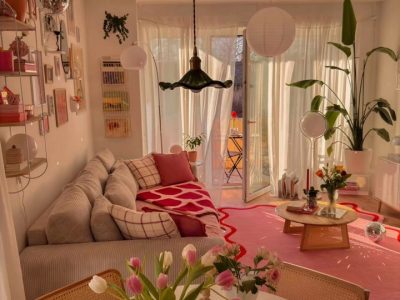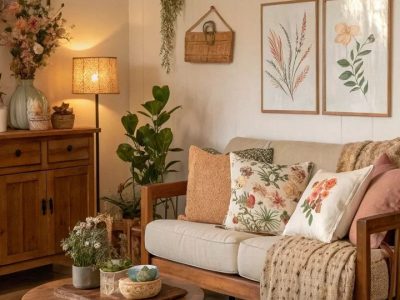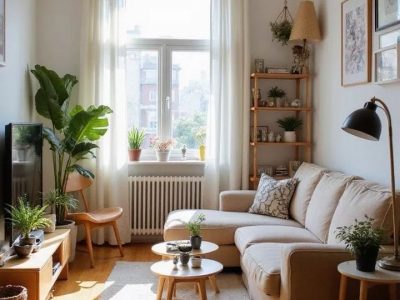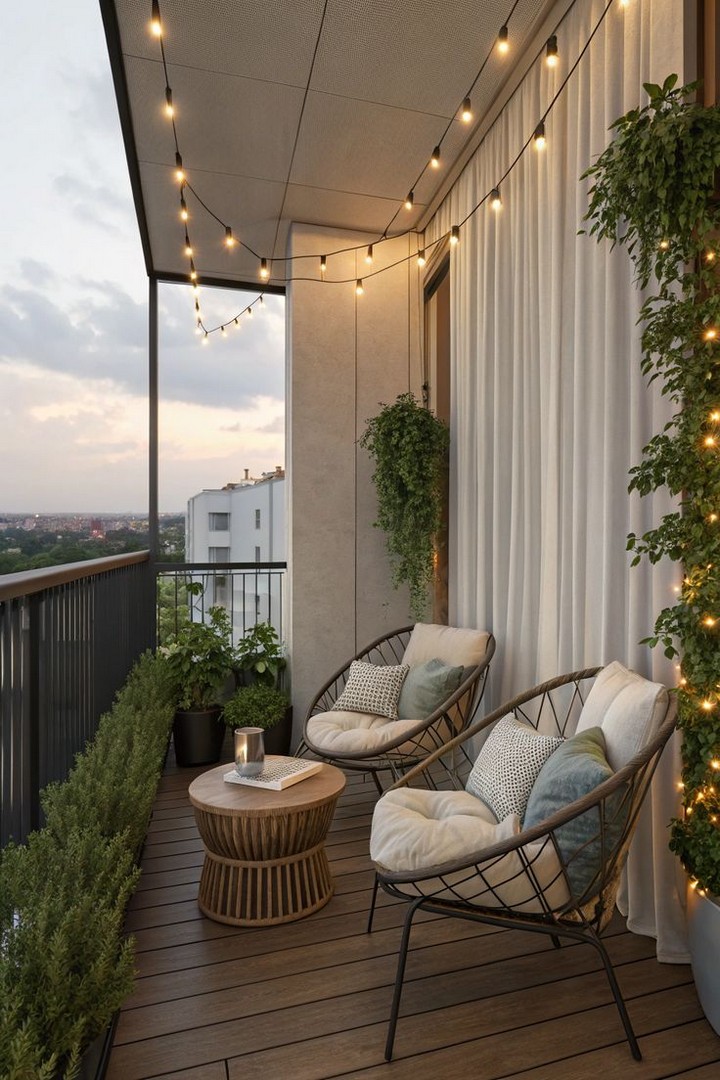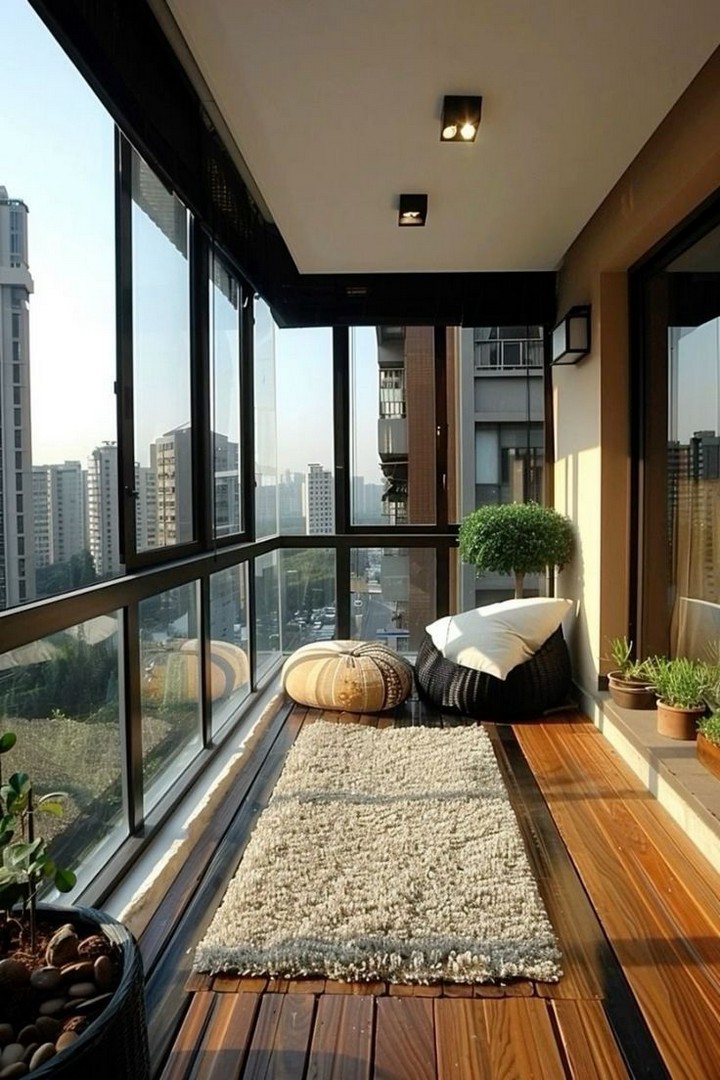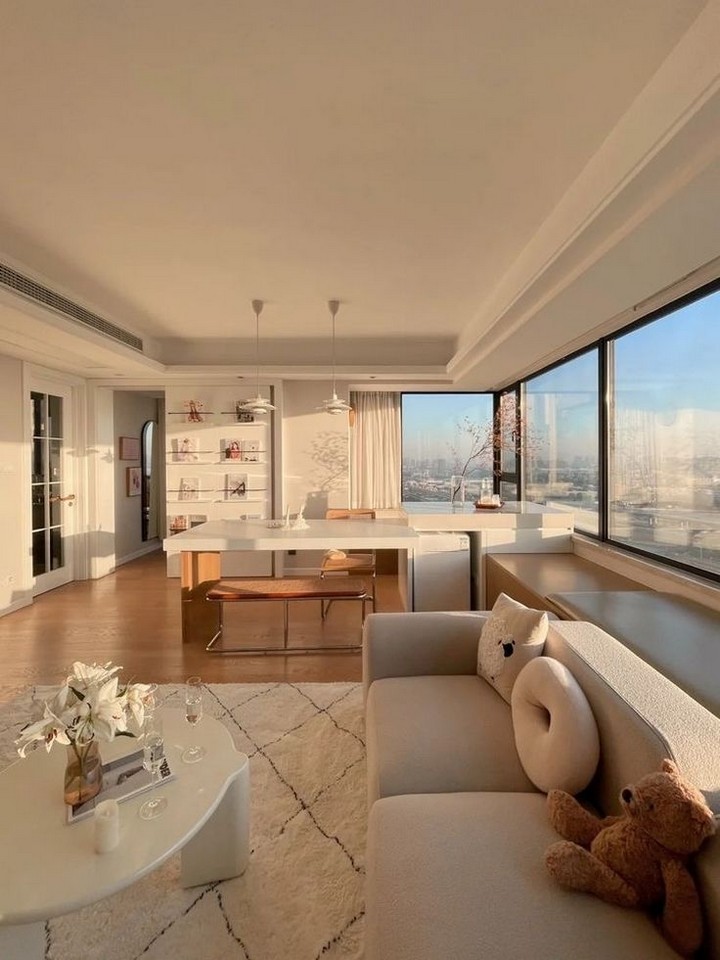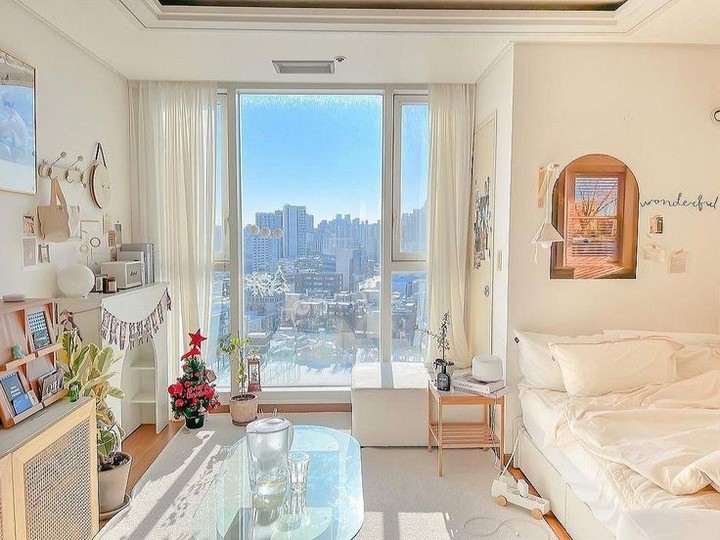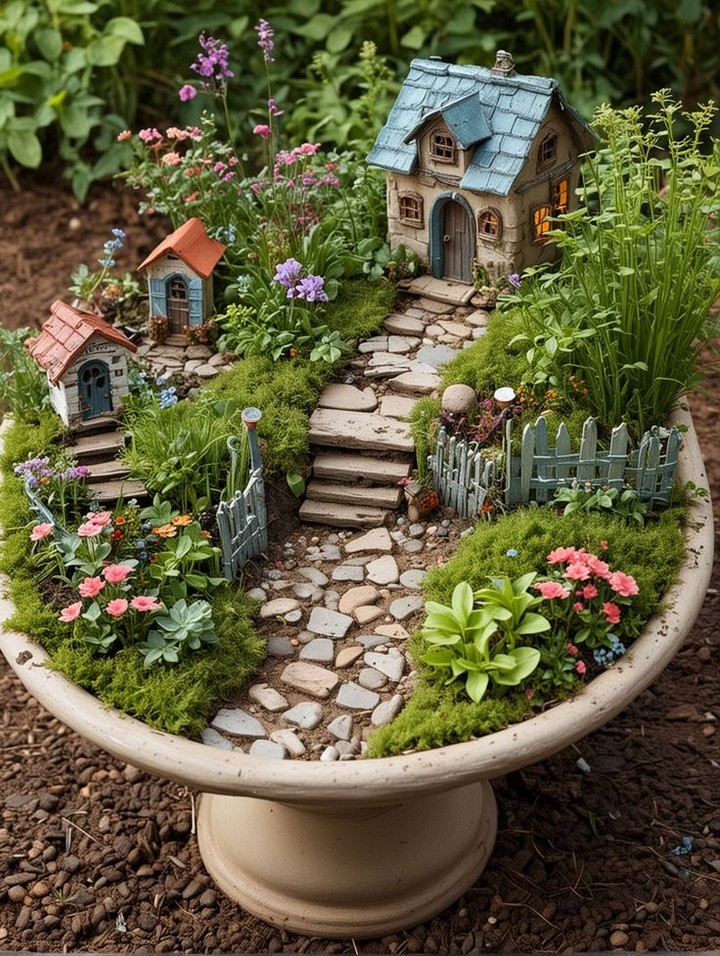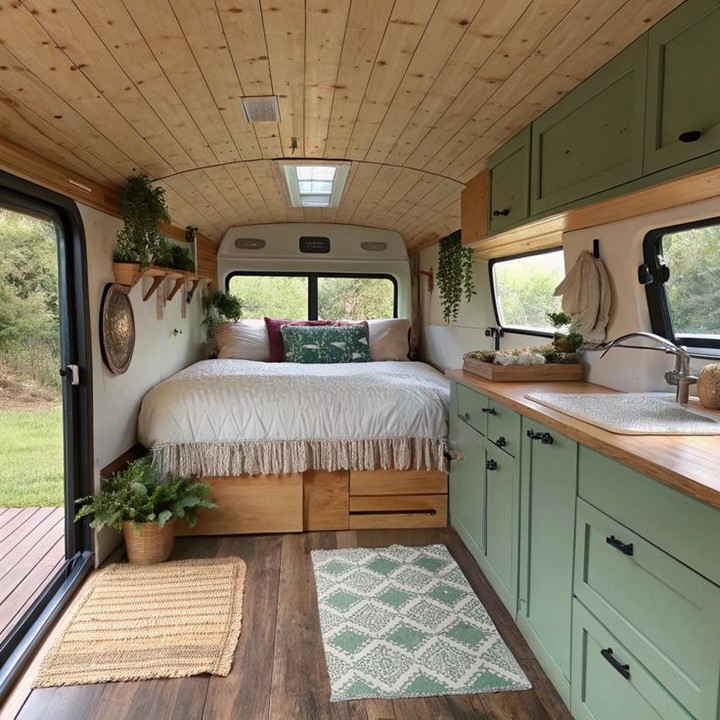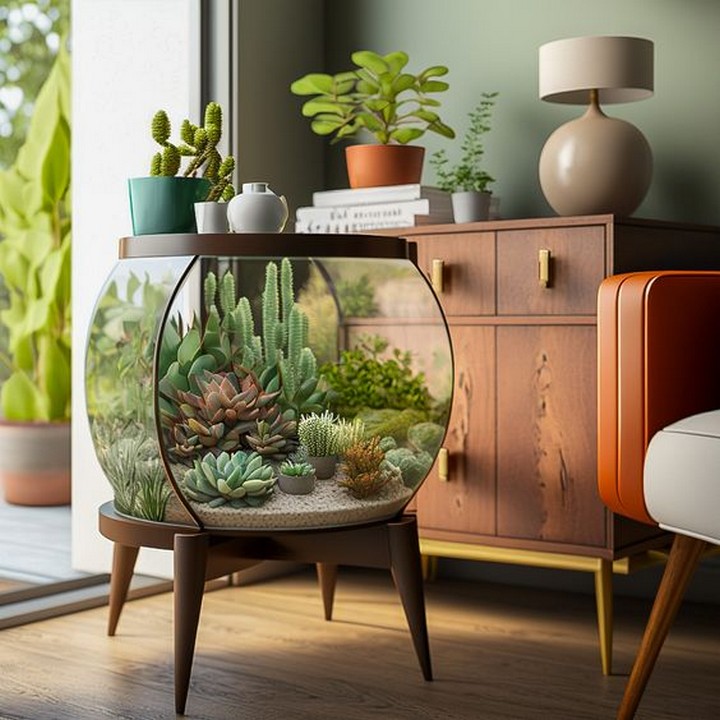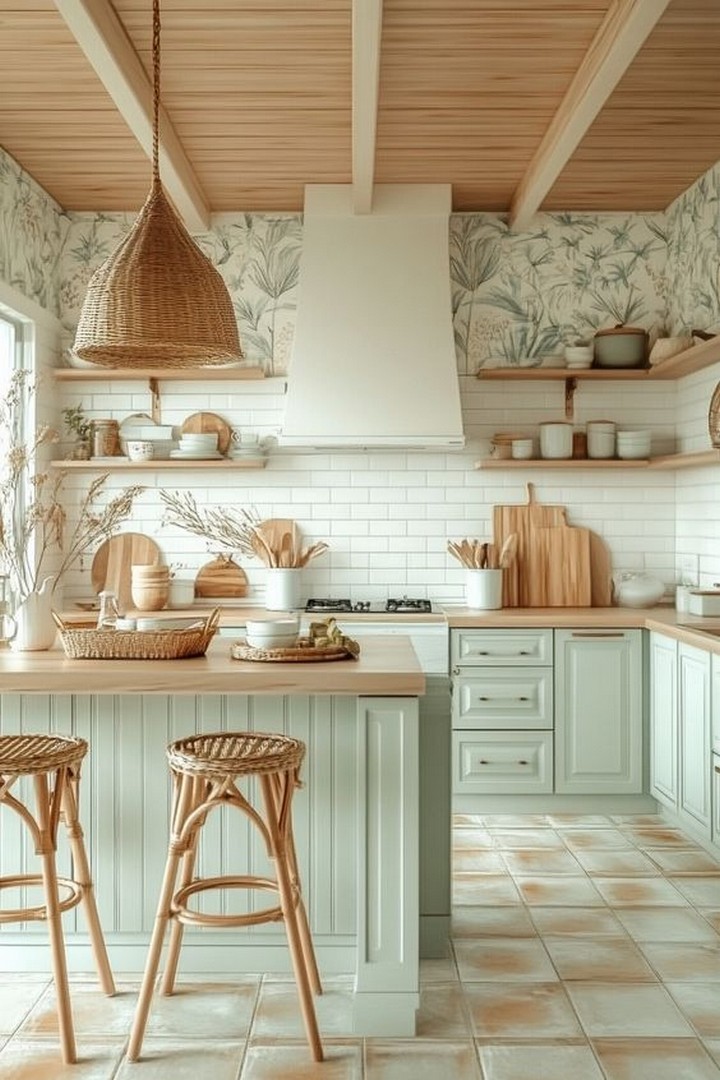College dorms and studio apartments are known for being small and, let’s face it, sometimes bland. But with the right touch of creativity and comfort-focused design, your personal space can transform into a cozy haven you’ll never want to leave. Whether you’re studying, sleeping, or just decompressing after a long day.
Moving into your first college dorm or studio apartment is an exciting milestone, but transforming a small, often bland space into a cozy, personalized sanctuary can be challenging. Whether you’re working with the typical cinder block walls of a dorm room or the limited square footage of a studio apartment, these 26 creative ideas will help you maximize your space while creating a comfortable, stylish environment that feels like home.
Smart Storage Solutions
1. Under-Bed Storage Systems
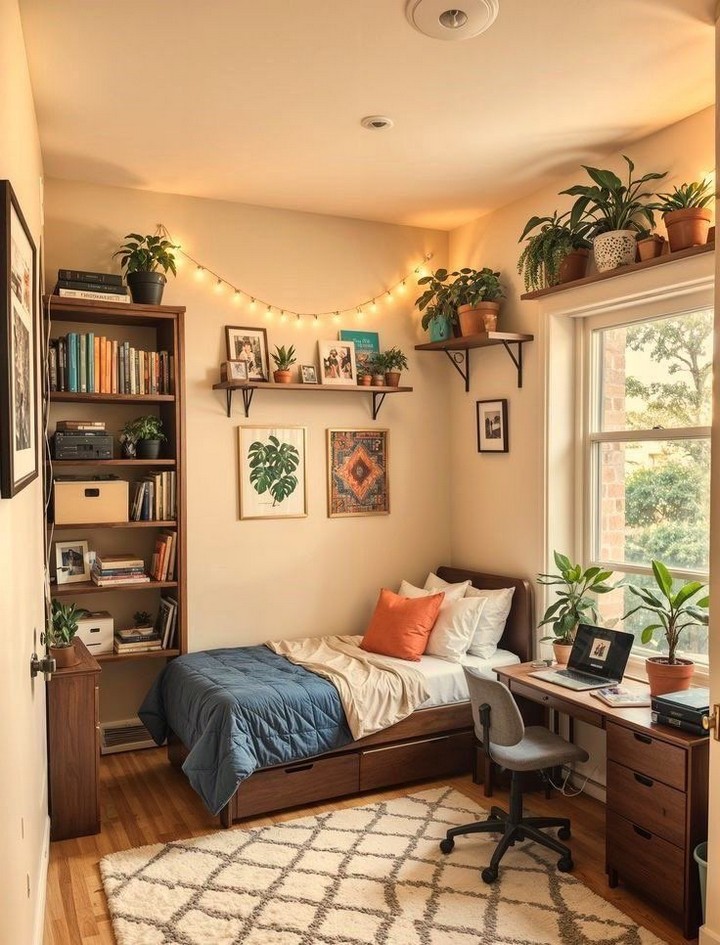
The space beneath your bed represents valuable real estate in a small room. Utilize this area with:
- Low-profile storage bins designed specifically for under-bed use
- Vacuum-sealed bags for off-season clothing
- Rolling drawers that provide easy access to frequently used items
- Bed risers to create additional height and storage capacity
A well-organized under-bed storage system can eliminate the need for extra dressers or storage furniture, freeing up precious floor space.
2. Over-Door Organizers
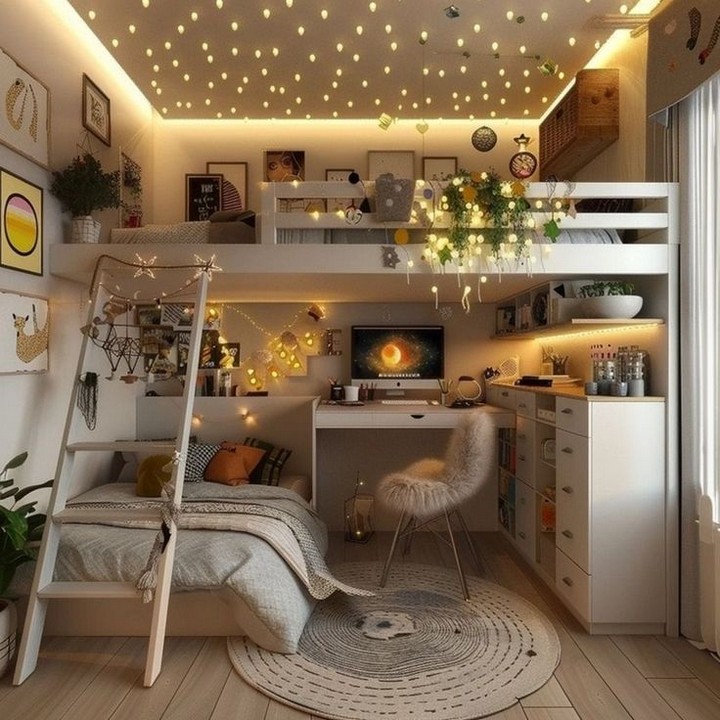
Door surfaces offer untapped vertical storage opportunities:
- Multi-pocket organizers for shoes, accessories, or toiletries
- Towel bars or hooks mounted on bathroom doors
- Hanging jewelry organizers to keep accessories tangle-free
- Spice racks repurposed for small personal items or school supplies
These solutions utilize space that would otherwise go unused while keeping essentials easily accessible.
3. Floating Shelves and Wall-Mounted Storage
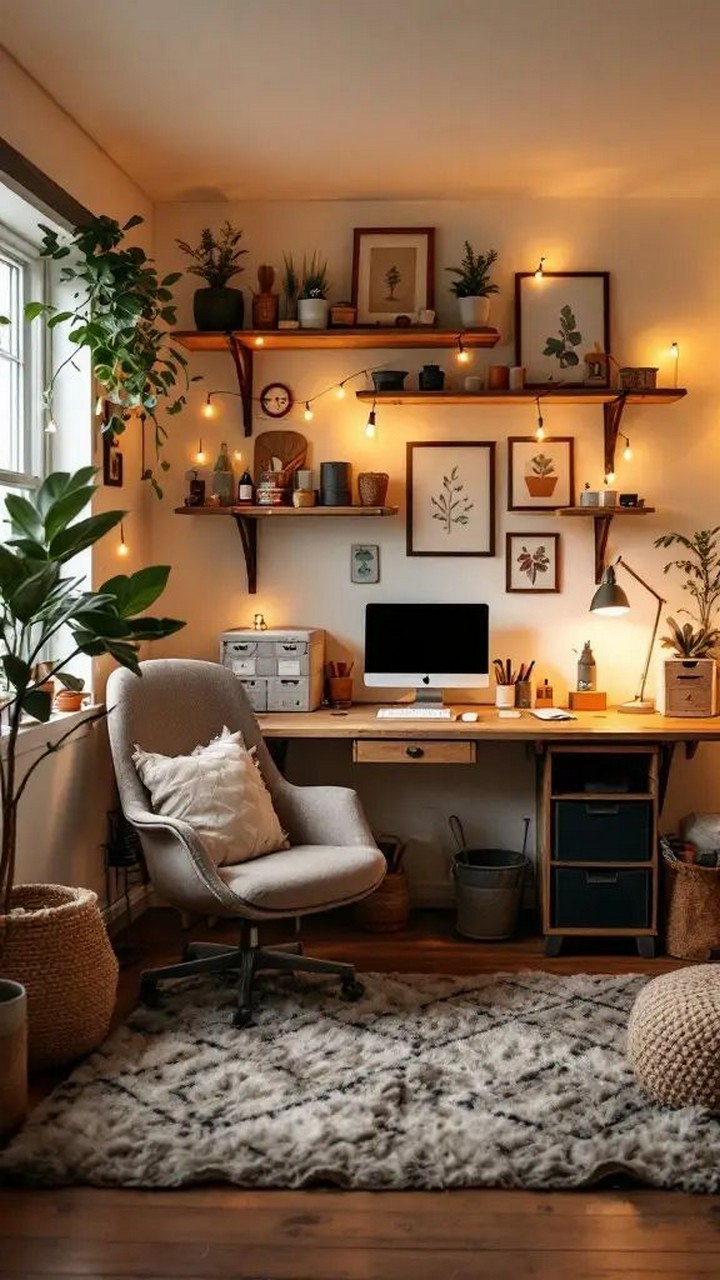
When floor space is limited, move upward:
- Install floating shelves at varying heights for books, plants, and decorative items
- Mount magazine racks for textbooks or reading materials
- Use wall-mounted baskets for smaller items like socks or accessories
- Consider pegboard systems that can be customized as needs change
Wall storage keeps important items visible and accessible while maintaining an open feel in your room.
4. Multi-Purpose Furniture Pieces
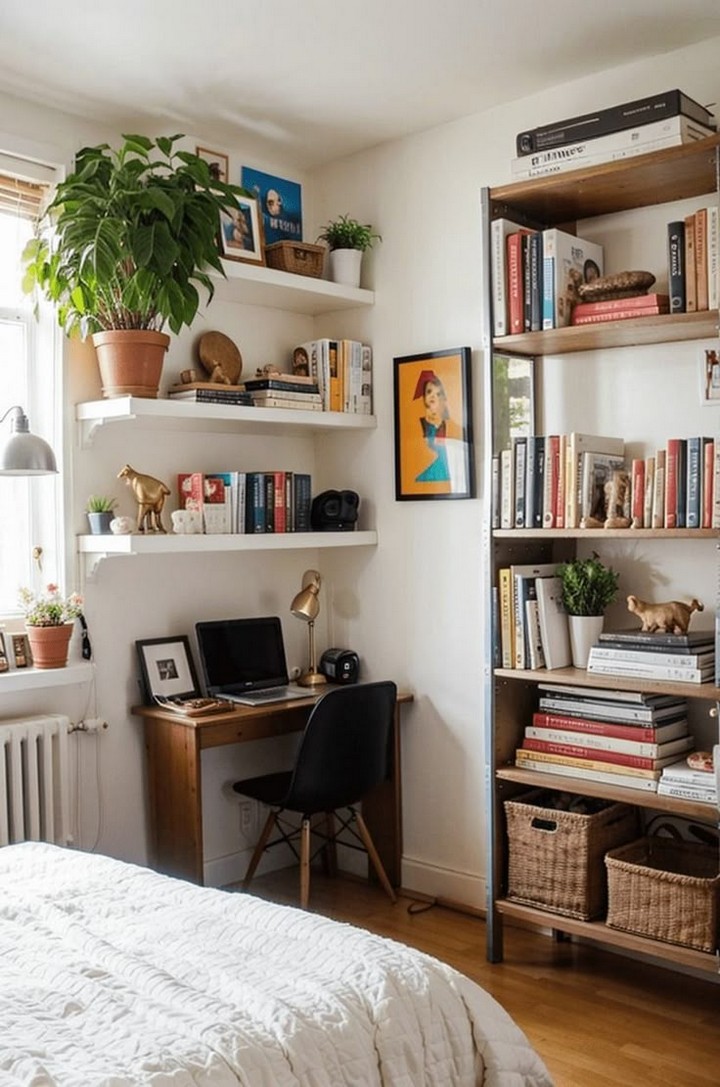
In small spaces, furniture should work double-duty:
- Storage ottomans that provide seating and hidden storage
- Bedside tables with drawers or shelving
- Desk with built-in bookshelves or storage compartments
- Platform beds with integrated drawer systems
By choosing furniture with built-in storage, you’ll maximize functionality without cluttering your space.
Comfort Enhancements
5. Layered Bedding for Ultimate Coziness
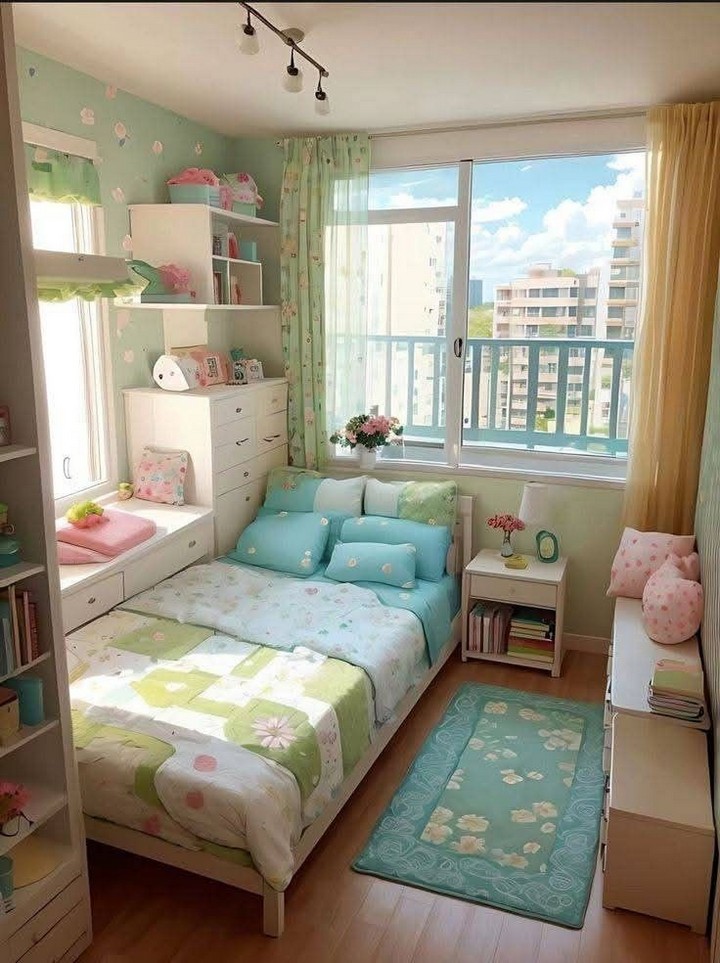
Your bed is the centerpiece of your room—make it inviting:
- Start with high-quality, breathable sheets (cotton or bamboo perform well)
- Add a medium-weight comforter or duvet that suits the local climate
- Layer with a textured throw blanket for visual interest and extra warmth
- Include 2-3 pillows in varying sizes for both support and decoration
- Consider a weighted blanket for improved sleep quality
A thoughtfully styled bed creates a cozy focal point while providing comfort after long study sessions.
6. Soft Lighting Solutions
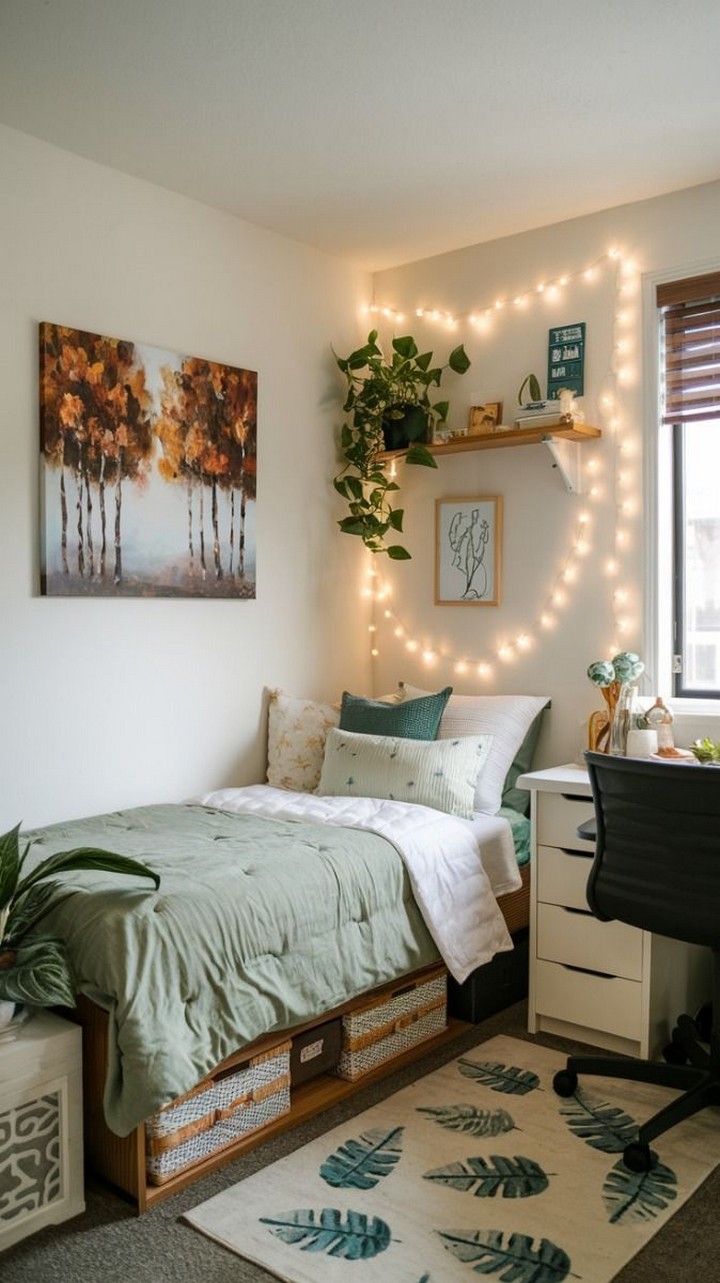
Harsh overhead lighting can make any space feel institutional rather than homey:
- String lights create ambient illumination and a magical atmosphere
- Clip-on reading lamps provide targeted light without taking up table space
- Salt lamps or small table lamps add warm, diffused lighting
- LED light strips under shelves or furniture create dimension
- Smart bulbs allow you to adjust brightness and color temperature
Varied lighting sources at different heights create depth and allow you to adjust the mood of your space.
7. Plush Rug Placement
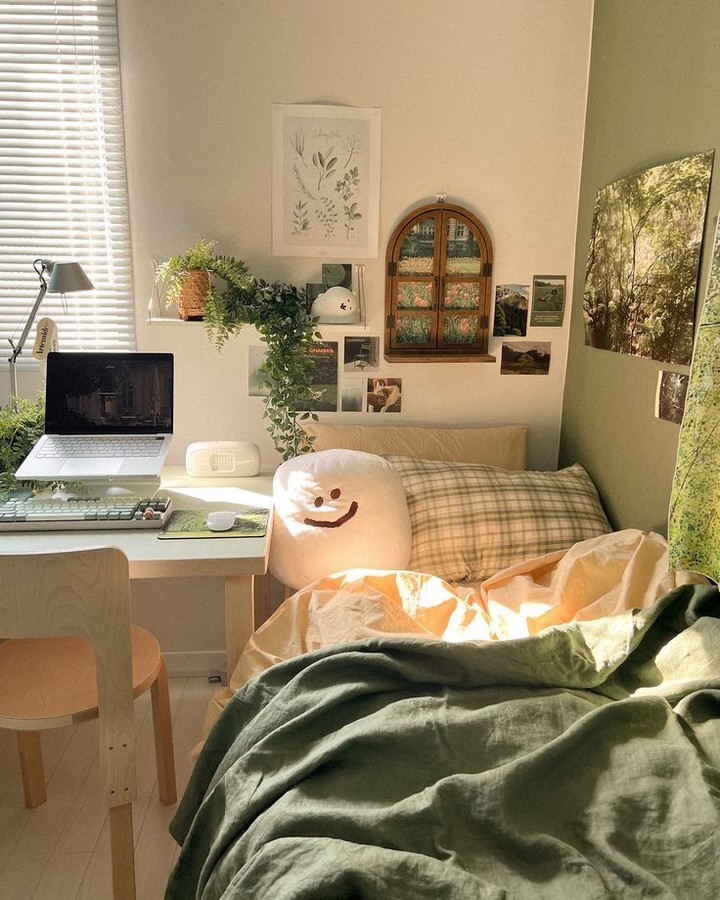
A well-chosen rug can transform the feel of your room:
- Place a medium-sized rug (5×7 or 4×6) partially under the bed to anchor the space
- Choose machine-washable options for practicality
- Consider layering smaller rugs for added texture and warmth
- Select patterns that complement your color scheme without overwhelming the space
A soft rug provides comfort underfoot while adding visual warmth to institutional flooring common in dorms and apartments.
8. Sound-Absorbing Elements
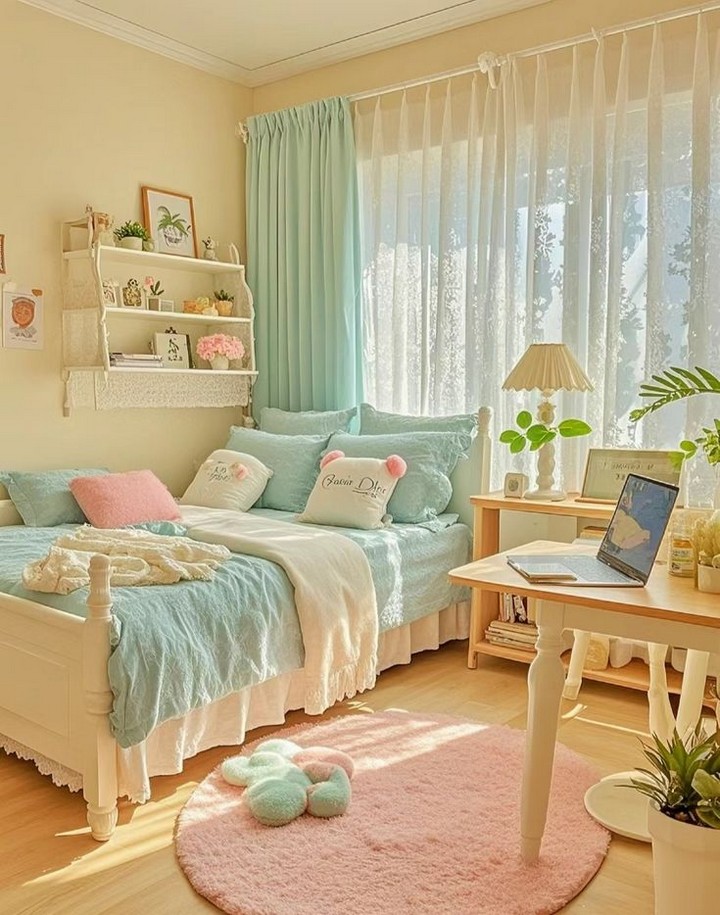
Small spaces can be echoey and loud incorporate elements that absorb sound:
- Fabric wall hangings or tapestries
- Cork boards for functionality and acoustic benefits
- Upholstered headboards that dampen sound while adding comfort
- Thick curtains that absorb noise and block light for better sleep
These additions make your space quieter and more conducive to studying or relaxing.
Personalization Strategies
9. Customizable Wall Decor
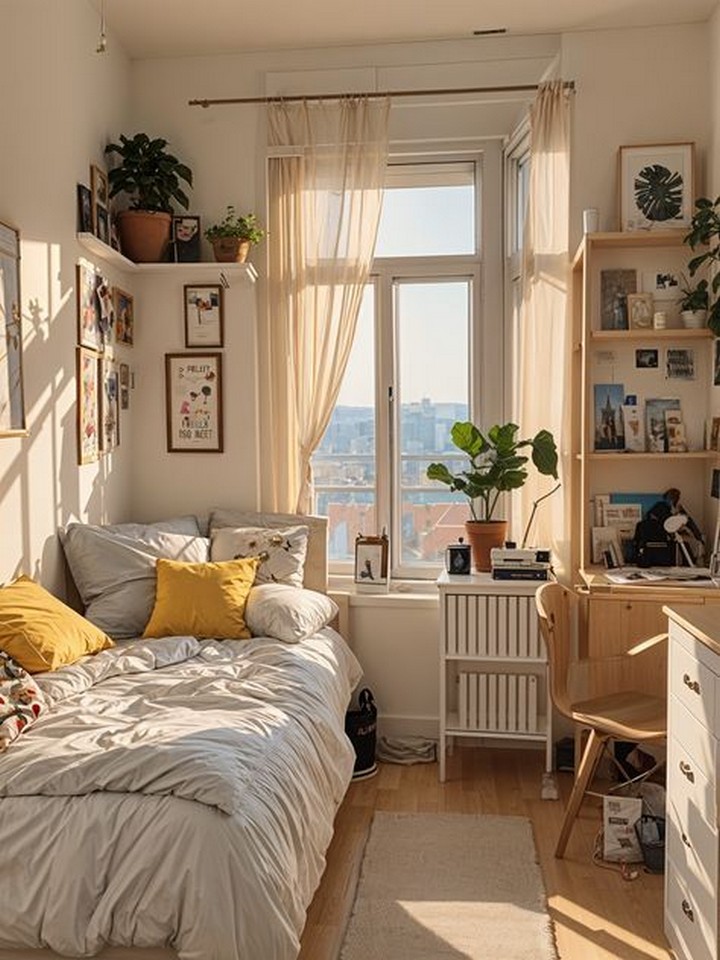
Transform plain walls without damaging surfaces:
- Washi tape geometric patterns create visual interest without paint
- Command strip photo galleries showcase memories and connections
- Fabric wall hangings add texture and color
- Removable wallpaper creates dramatic transformation for one wall
These non-permanent solutions allow for personalization while respecting rental or dorm regulations.
10. Plant Life Integration
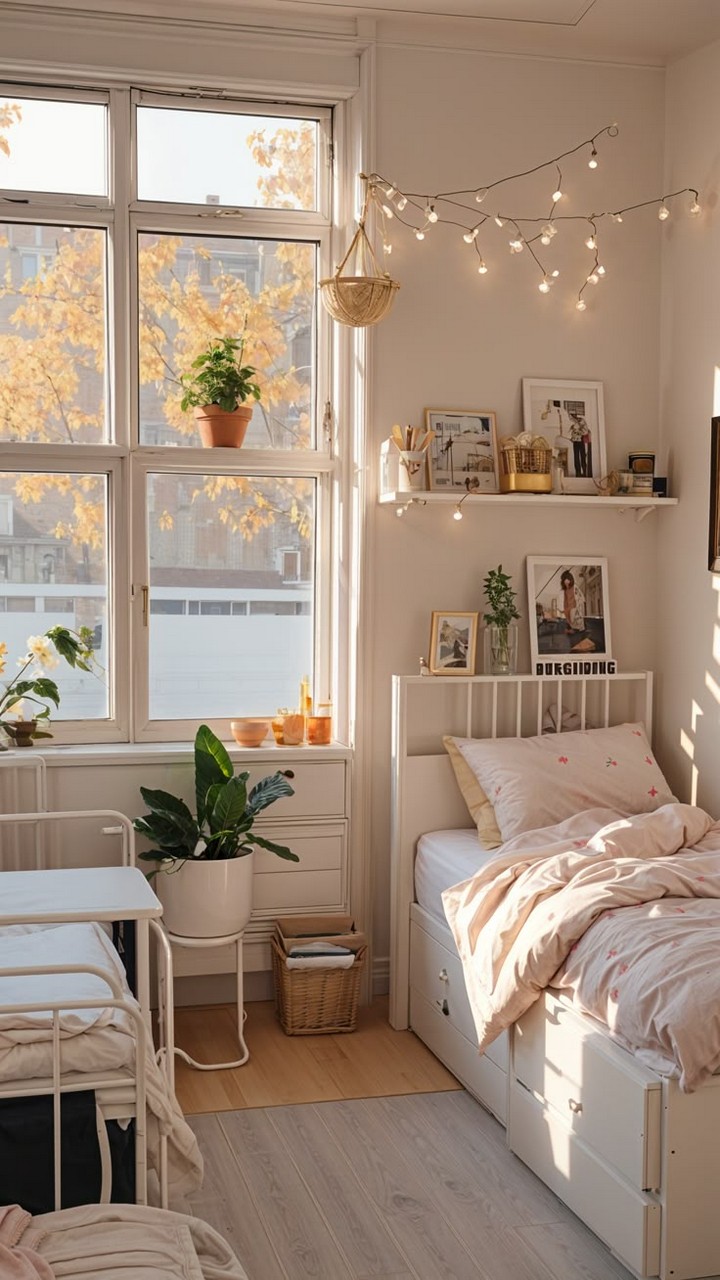
Adding greenery brings life and improved air quality to small spaces:
- Low-maintenance plants like pothos, snake plants, or ZZ plants thrive indoors
- Wall-mounted planters save surface space
- Herb gardens near windows provide fresh ingredients and pleasant aromas
- Air plants require minimal care while adding natural elements
Even artificial plants can add a biophilic element when real plants aren’t practical.
11. Color Coordination Systems
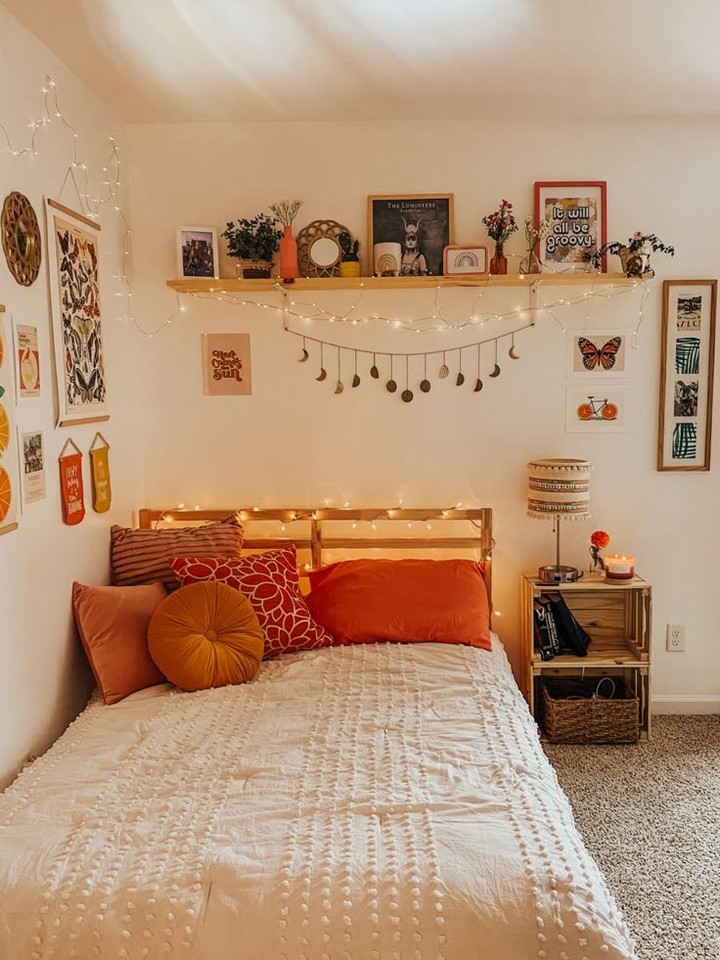
A cohesive color scheme makes small spaces feel intentional rather than chaotic:
- Choose a base color plus 2-3 accent colors for visual harmony
- Use removable drawer liners to add color to storage areas
- Coordinate desk accessories within your chosen palette
- Select bedding that ties your color scheme together
A thoughtful color approach creates visual continuity that makes the space feel larger and more put-together.
12. Personal Interest Displays
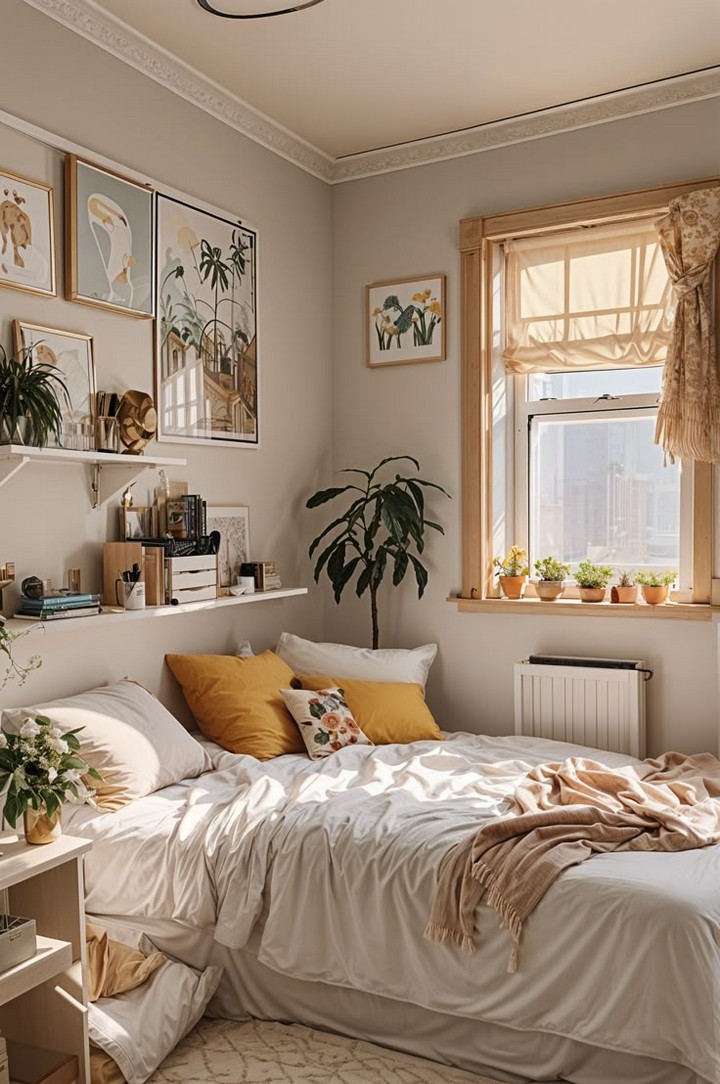
Showcase your personality through curated displays:
- Floating shelves featuring collections or meaningful objects
- Framed concert tickets or event memorabilia
- Academic achievements displayed alongside personal interests
- Travel souvenirs or mementos from home
These personal touches transform an anonymous space into one that tells your unique story.
Space-Maximizing Techniques
13. Vertical Storage Systems
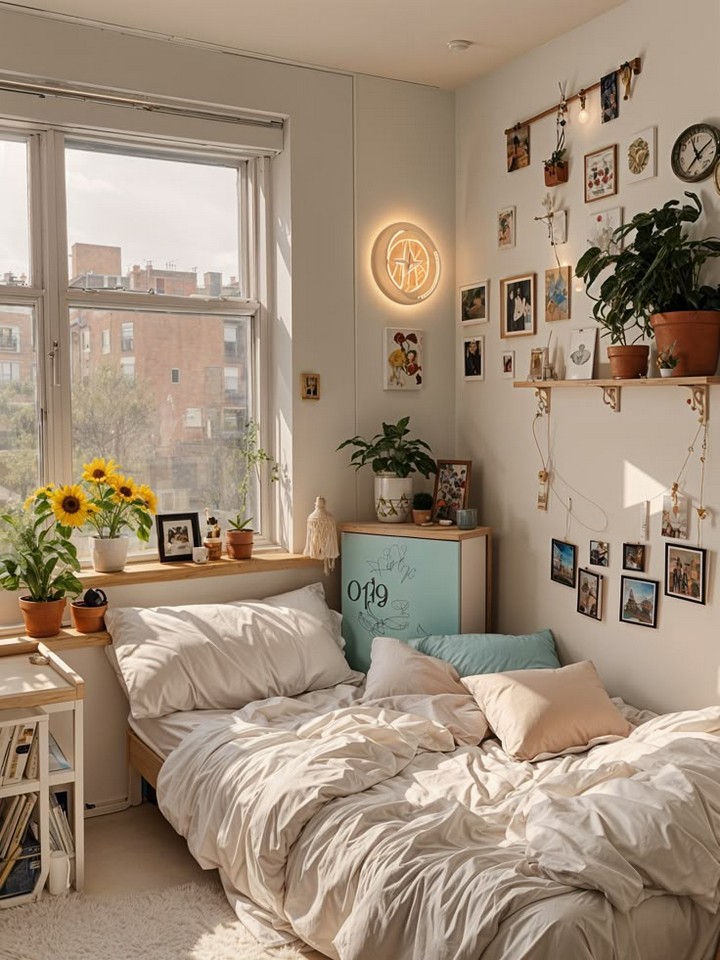
When floor space is limited, think upward:
- Over-toilet shelving units in bathrooms
- Floor-to-ceiling bookshelves in narrow spaces
- Stacking storage cubes that can grow as needed
- Wall-mounted shoe organizers repurposed for various items
Vertical systems maximize every available inch while keeping essentials organized and accessible.
14. Mirror Placement for Visual Expansion
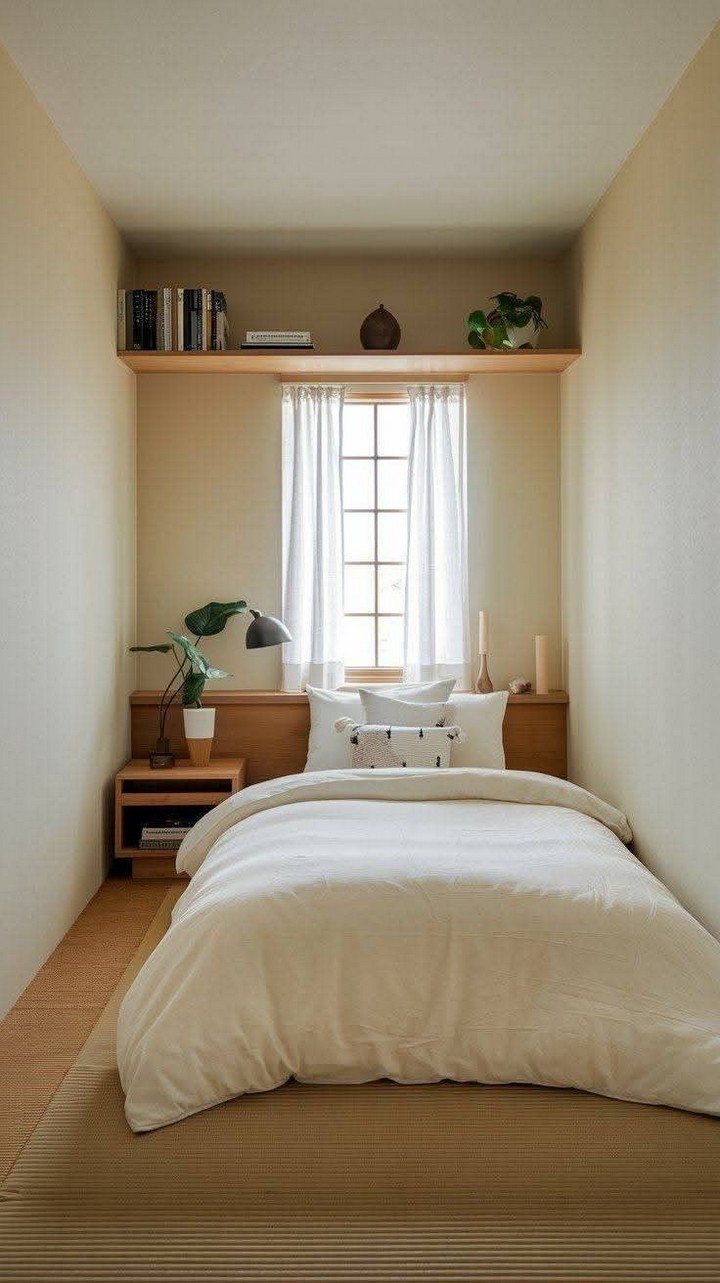
Mirrors serve both practical and visual purposes:
- Place a full-length mirror on the back of a door
- Position mirrors opposite windows to reflect natural light
- Use mirrored furniture or trays to create depth
- Create a statement wall with smaller mirror groupings
Strategic mirror placement makes spaces feel larger, brighter, and more open.
15. Foldable and Collapsible Solutions
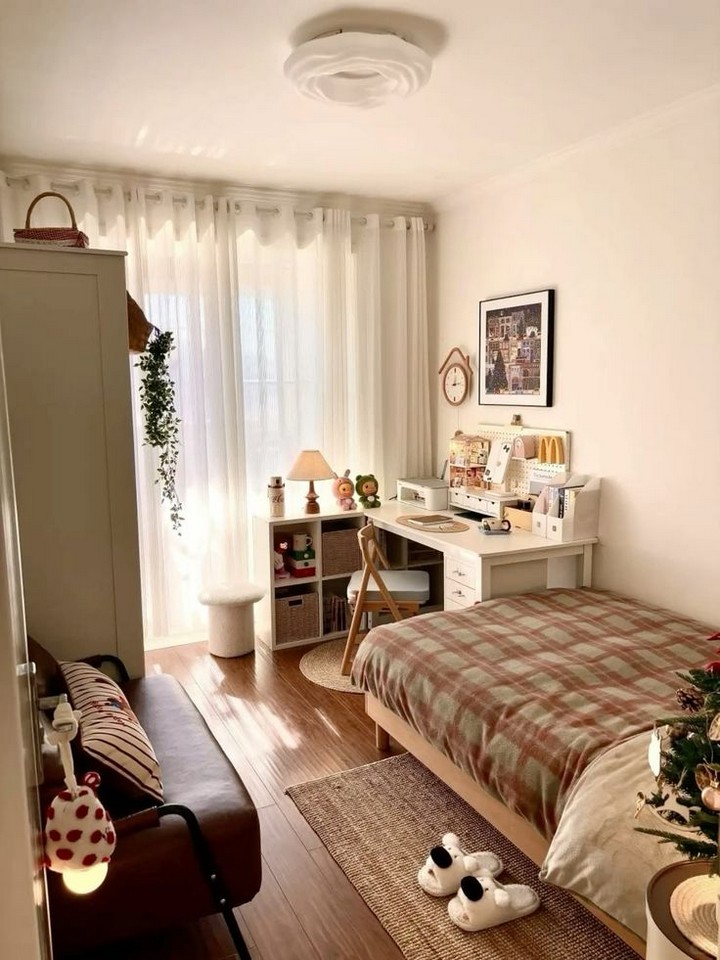
Items that can be stowed when not in use preserve precious space:
- Folding desk chairs that can be hung on hooks
- Collapsible laundry baskets or hampers
- Foldable step stools for reaching high storage
- Expandable drawer dividers that adapt to changing needs
These adaptive solutions provide functionality without permanent space commitment.
16. Zone Creation Through Furniture Arrangement
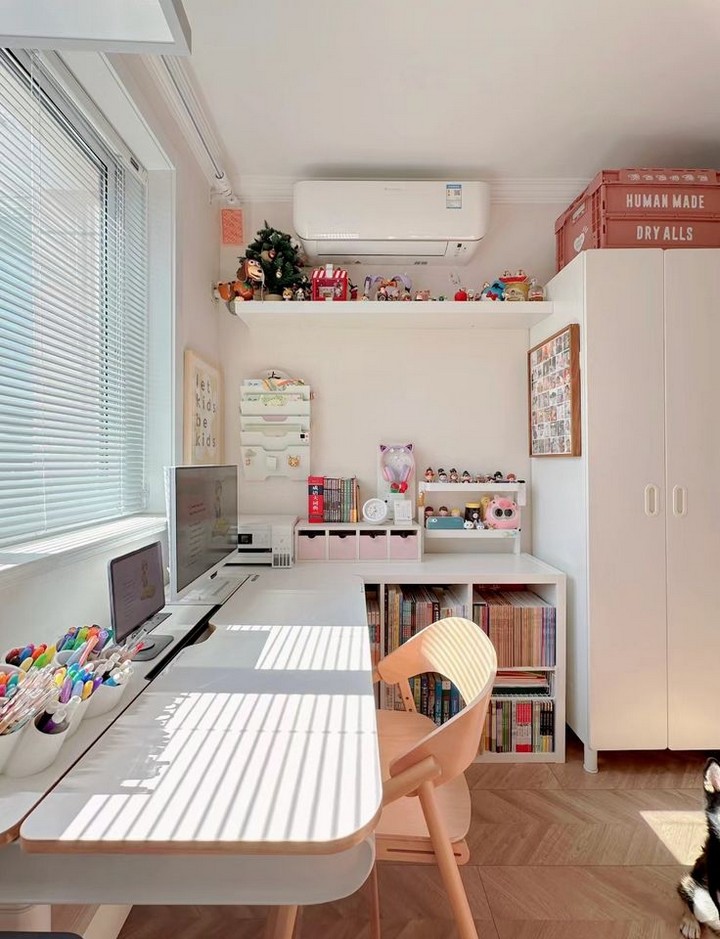
Even in a single room, create distinct areas for different activities:
- Position your desk near natural light but away from bed distractions
- Use a bookshelf as a room divider in studio apartments
- Create a small meditation or exercise corner with a folding mat
- Designate a specific area for getting ready with appropriate storage
Thoughtful zoning helps maintain mental separation between work, relaxation, and sleep areas.
Study and Productivity Enhancements
17. Ergonomic Workspace Design
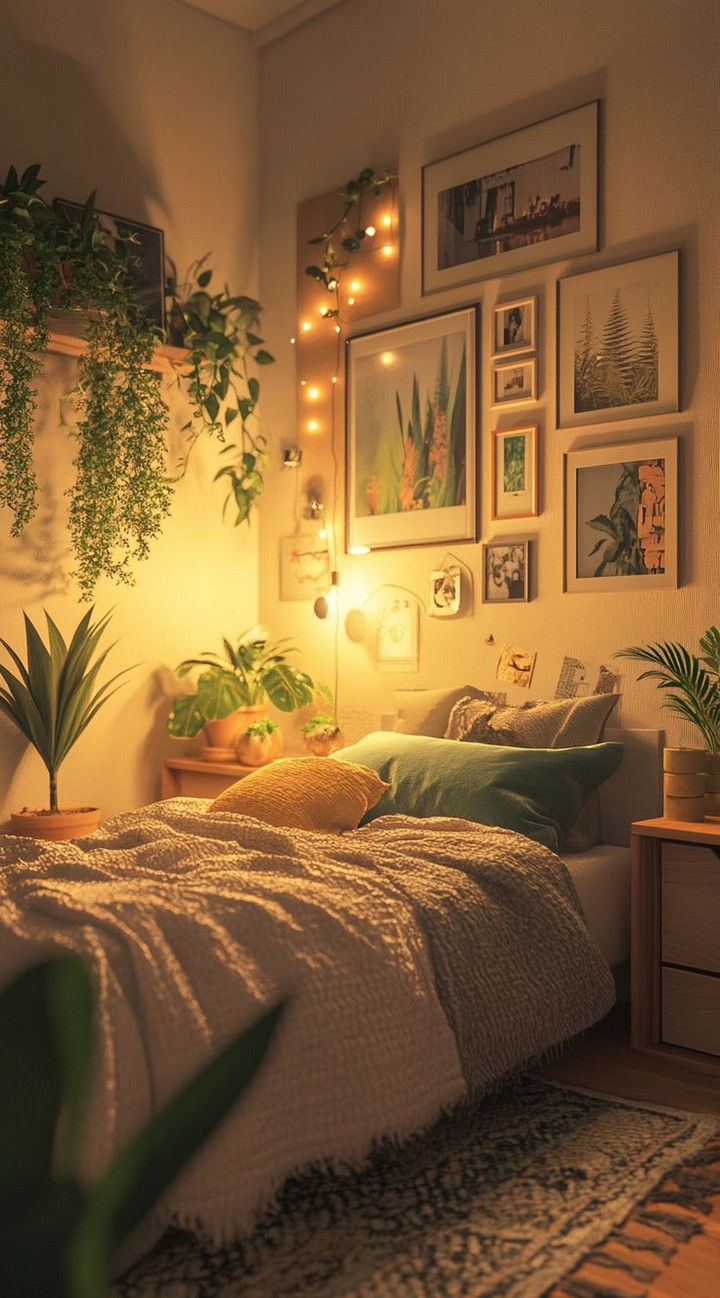
Create a study area that supports long sessions:
- Adjust desk and chair heights to maintain proper posture
- Position your computer monitor at eye level
- Use a desk lamp that reduces eye strain
- Incorporate a small footrest for comfort during long study sessions
An ergonomic setup prevents physical discomfort while maximizing productivity.
18. Wall-Mounted Desk Options
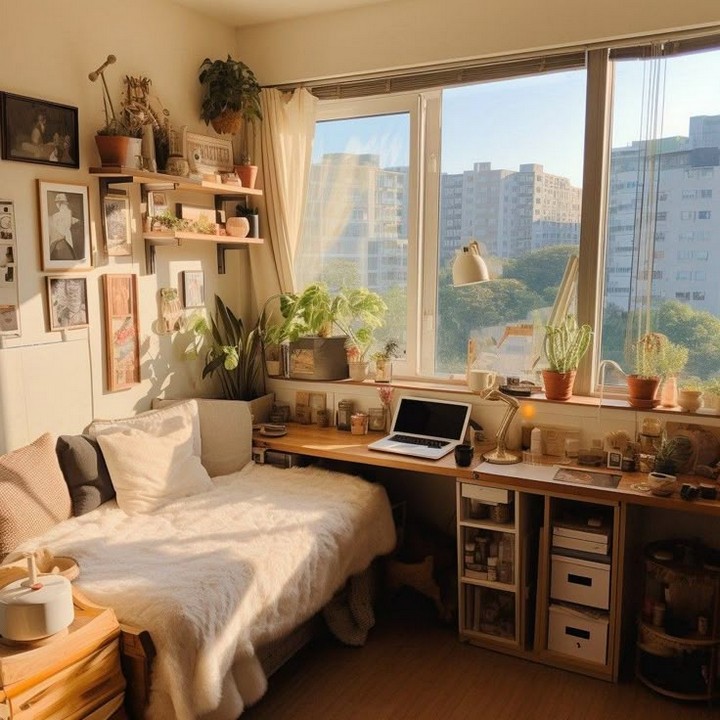
When floor space is limited, consider wall-based workspaces:
- Fold-down desks that can be closed when not in use
- Floating shelves at desk height with enough depth for a laptop
- Wall-mounted monitor arms to free up desk surface
- Pegboard systems above desks for customizable organization
These solutions provide necessary work surfaces without the footprint of traditional desks.
19. Portable Study Stations
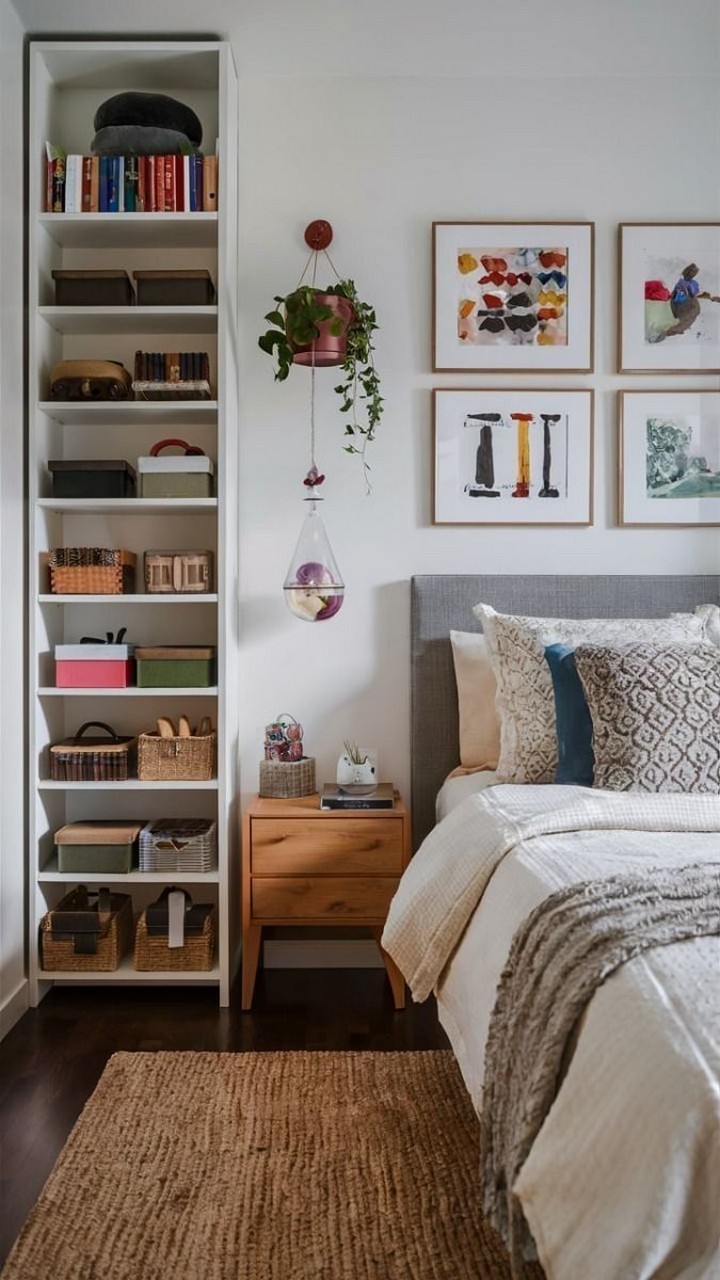
For maximum flexibility, create movable study setups:
- Lap desks for working from bed or a comfortable chair
- Rolling carts with supplies that can be positioned as needed
- Clipboard portfolios for studying anywhere
- Tech organizers that keep devices and chargers together
Portable solutions allow you to change your environment based on mood or study needs.
20. Digital Organization Systems
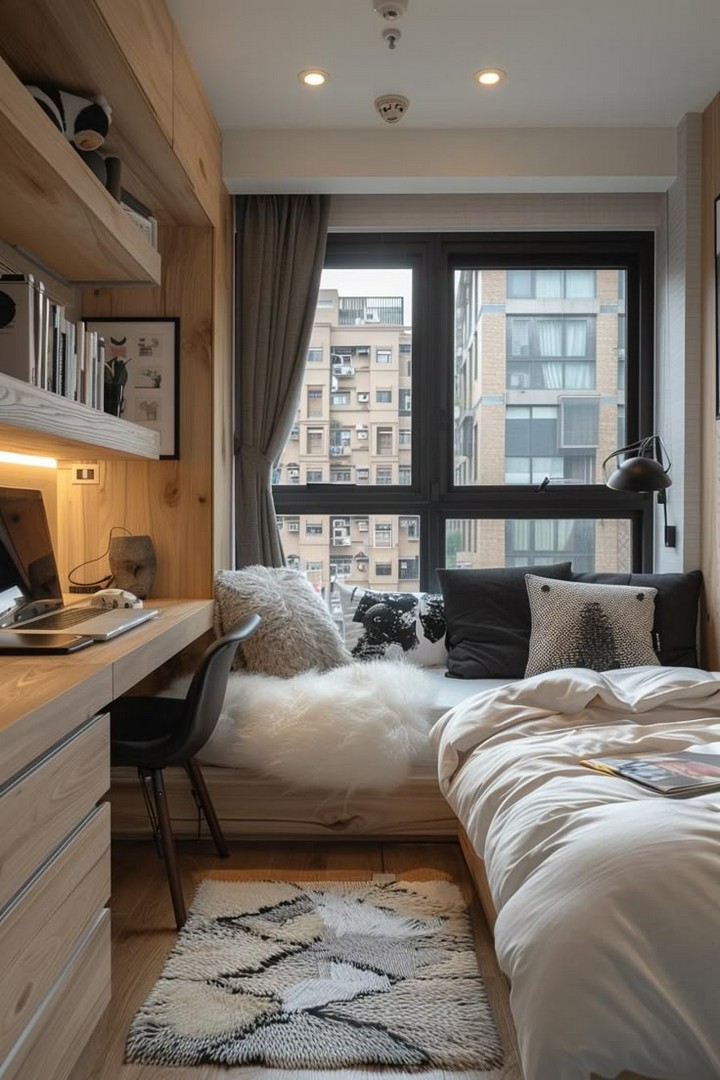
Reduce physical clutter by maximizing digital solutions:
- Cloud storage for documents instead of paper files
- E-books and digital textbooks when possible
- Scanner apps to digitize handwritten notes
- Digital planning tools to replace physical planners
These approaches preserve physical space while maintaining academic organization.
Lifestyle Accommodations
21. Compact Food Preparation Areas
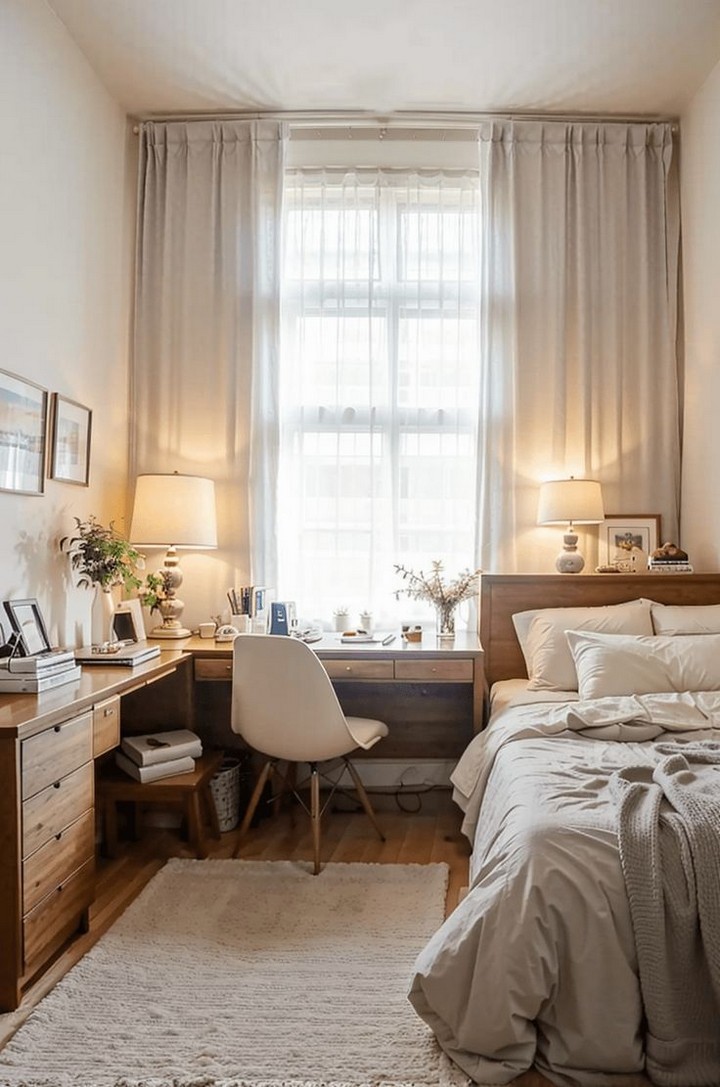
Even minimal kitchen setups can be functional:
- Microwave-safe meal prep containers for easy cooking
- Multi-purpose tools like combination coffee maker/kettles
- Magnetic strips for metal utensils
- Stacking food storage with uniform containers
Thoughtful kitchen organization makes healthy eating possible even in minimal spaces.
22. Sleep Optimization Strategies
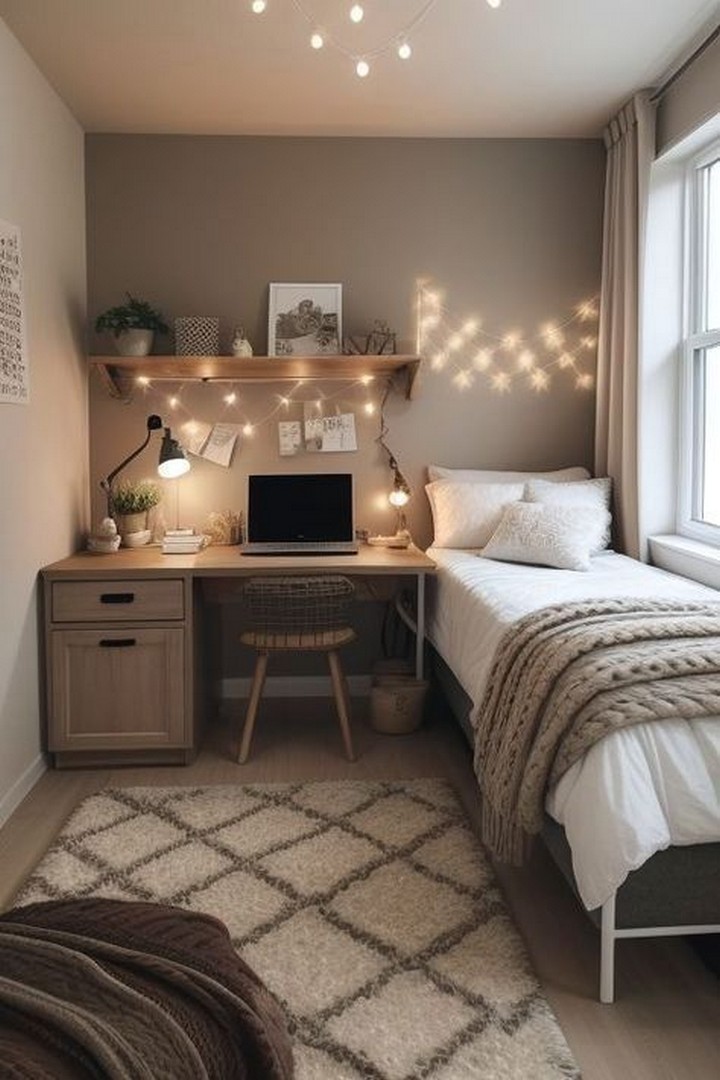
Quality sleep is crucial for academic success:
- Blackout curtains to control light exposure
- White noise machines or apps to mask disruptive sounds
- Bed canopies to create a cocoon-like sleeping space
- Mattress toppers to improve dorm bed comfort
These additions transform uncomfortable sleeping arrangements into restful retreats.
23. Technology Management Solutions
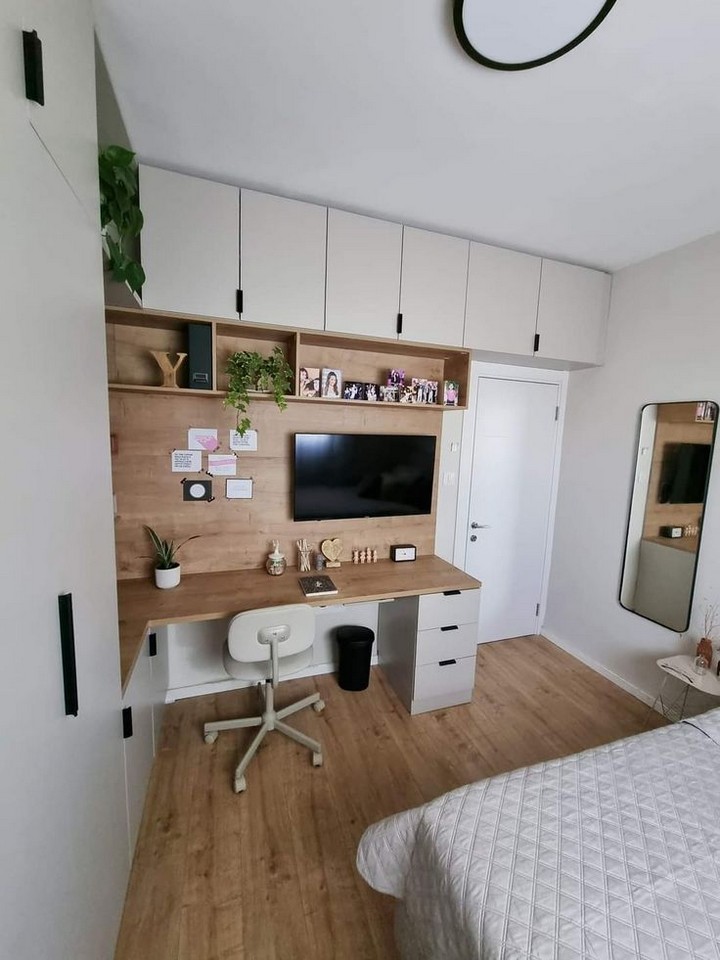
Keep devices organized and accessible:
- Cable management systems to reduce visual clutter
- Charging stations that contain multiple device wires
- Headphone hooks or stands to protect investments
- Printer shelves that utilize vertical space
Organized technology setups reduce stress and save valuable minutes during busy days.
24. Laundry Processing Systems
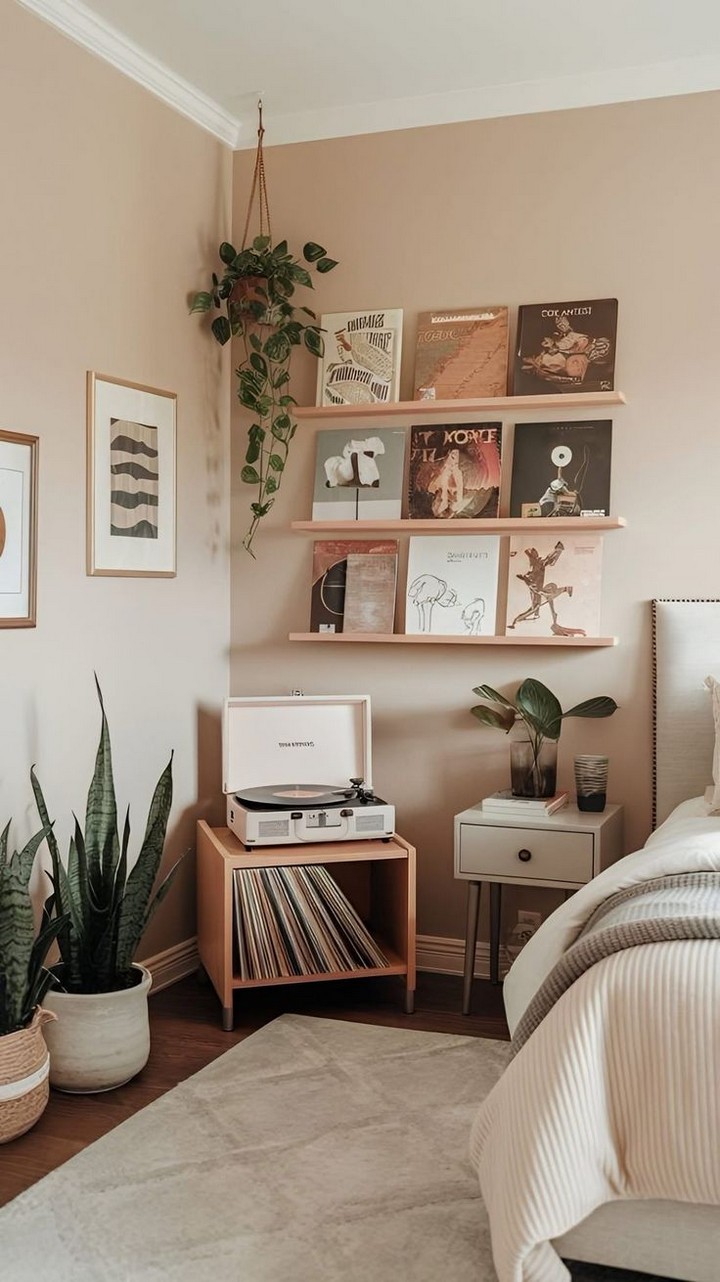
Manage clothing care in limited space:
- Over-door drying racks for delicate items
- Slim rolling laundry carts that fit between furniture
- Stacking laundry baskets to separate lights and darks
- Combination ironing boards/hampers for all-in-one solutions
These systems keep laundry contained and manageable within your personal space.
25. Scent Strategies for Ambiance
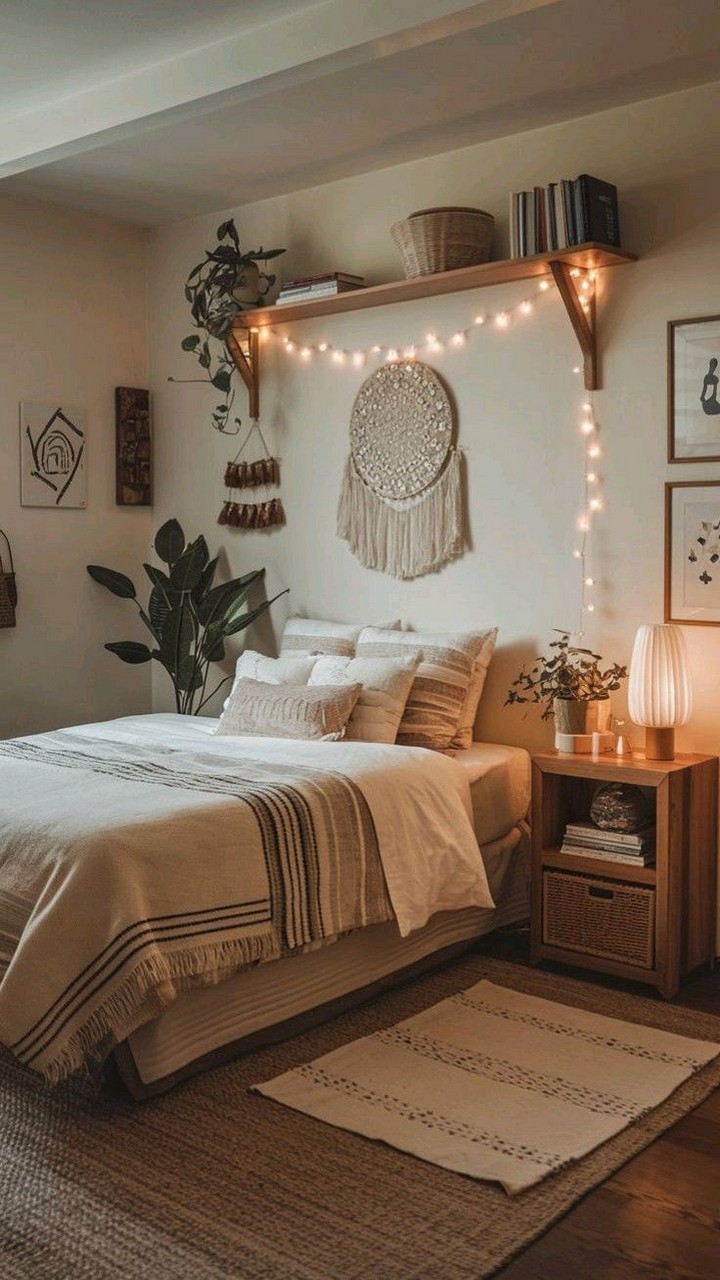
Appeal to all senses with pleasant fragroms:
- Essential oil diffusers with relaxing scents like lavender or eucalyptus
- Fabric fresheners for textiles that can’t be frequently washed
- Small potted herbs like mint or basil for natural fragrance
- Scented drawer liners to keep clothing fresh
Thoughtful scent choices create a welcoming atmosphere that truly feels like home.
26. Seasonal Rotation Systems
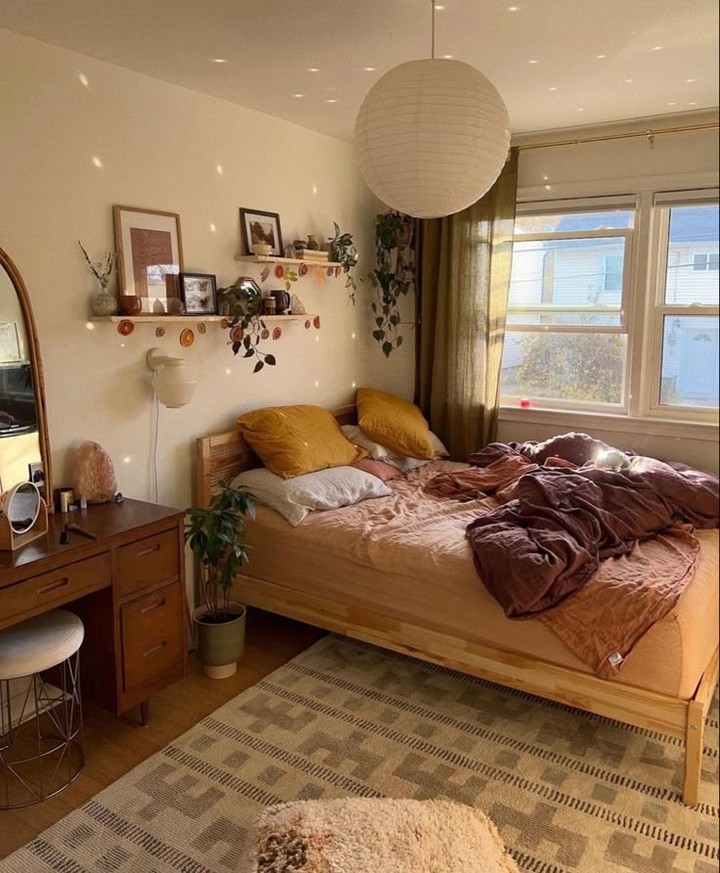
Keep your space fresh through seasonal changes:
- Under-bed storage for off-season clothing and bedding
- Interchangeable throw pillow covers rather than multiple pillows
- Wall art that can be easily swapped for different moods or seasons
- Multi-purpose decorative items that transition between holidays
Rotation systems prevent accumulation while allowing for refreshed spaces throughout the year.
Making It Work: Practical Implementation
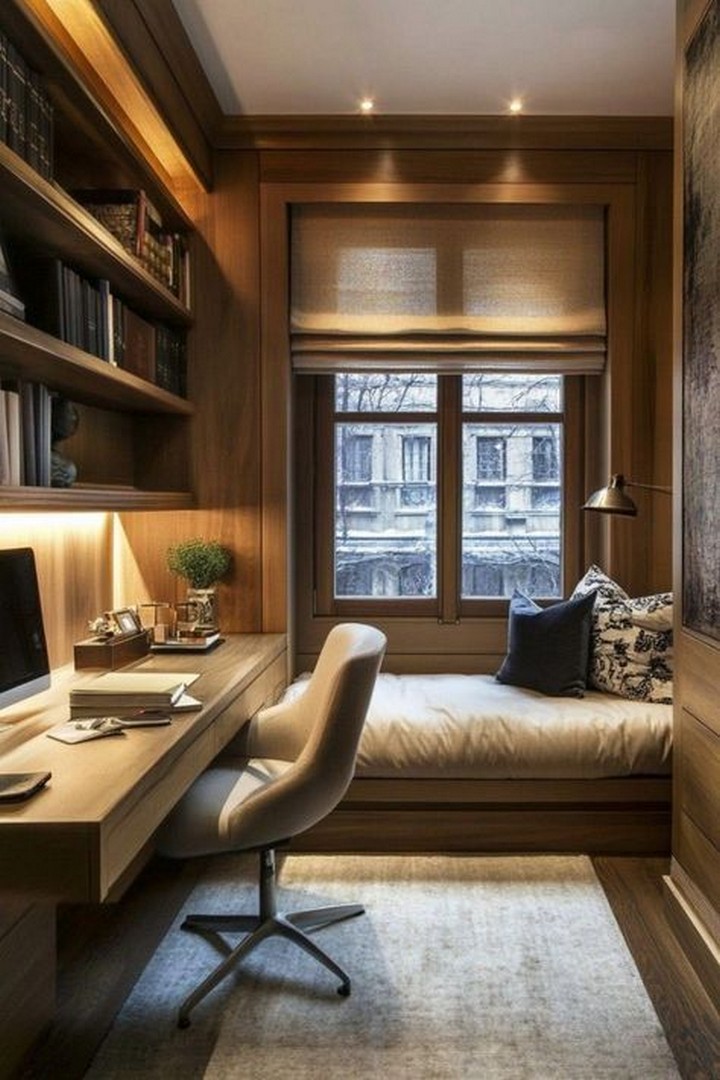
Implementing these ideas doesn’t require a massive budget or permanent modifications. Start by assessing your specific needs and priorities. Are you primarily concerned with storage? Study space? Sleep quality? Begin with the areas that impact your daily life most significantly.
For dorm rooms specifically, check institutional regulations before installing anything. Most schools provide approved methods for wall decoration that won’t damage surfaces. Similarly, rental apartments have guidelines about modifications—many of these ideas can be adapted to comply with these restrictions.
Remember that small space living is ultimately about mindfulness. Each item should earn its place through either utility or joy. Regular reassessment of your space allows for adjustments as your needs change throughout the academic year.
Your Space, Your Sanctuary
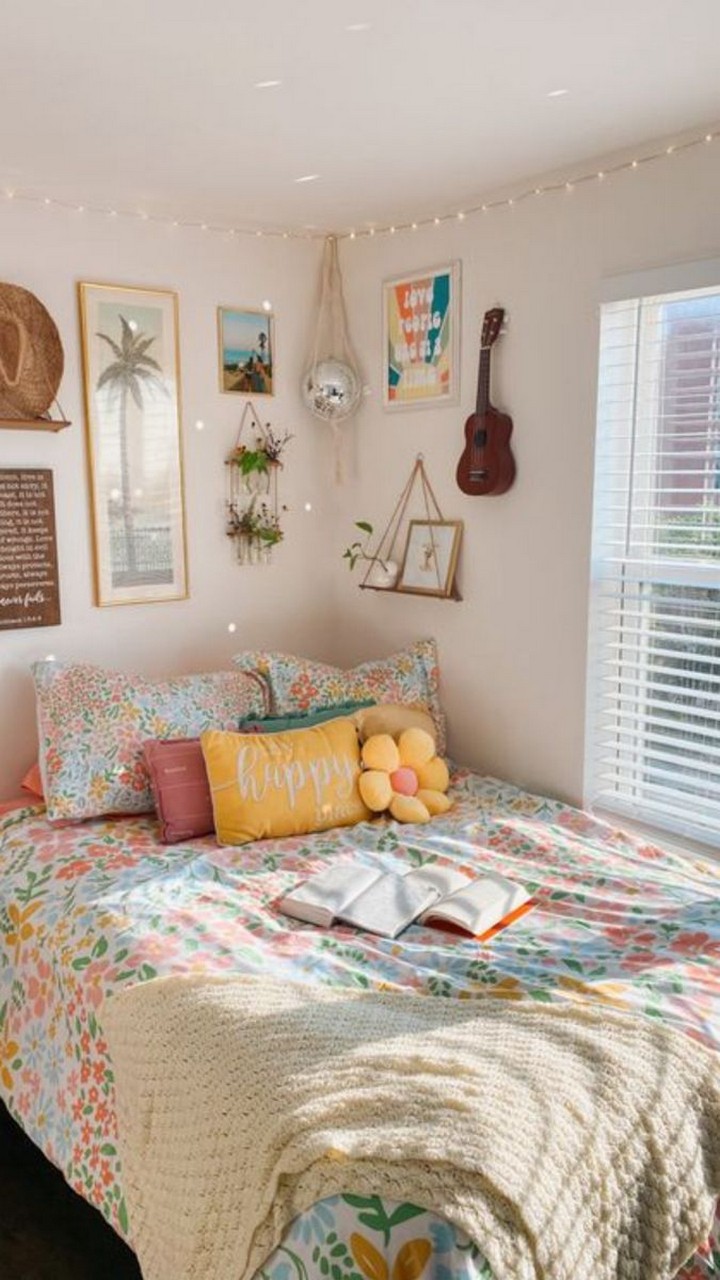
Transforming a standard dorm room or studio apartment into a personalized haven requires creativity, but the effort pays significant dividends in your comfort and wellbeing. These spaces serve as your study center, sleeping quarters, and social hub often all at once. By implementing ideas that maximize both functionality and personal expression, you create an environment that supports your academic goals while providing comfort during a transformative time in your life.
The most successful small space designs reflect the individuals who inhabit them. Mix and match these ideas based on your personal priorities, aesthetic preferences, and practical needs to create a space that truly feels like yours.
Which of these ideas resonates most with your situation? Have you found other creative solutions for small space living? Share your thoughts, photos, or questions in the comments below! If you’ve successfully implemented any of these ideas, your experiences could help fellow students or apartment dwellers create their perfect cozy sanctuary.
For more inspiration on budget-friendly decorating, space-saving furniture hacks, or specific storage solutions, browse our related articles and join our community of small space enthusiasts.

